Have you heard of natural trans fats in Milk? Before we tell you about this let us first discuss trans fats.
Trans fats are partially hydrogenated meaning that they have one or more double bonds in the trans configuration. These trans fats impart solidity to margarine and plasticity to shortenings. Scientific studies have proved the harmful effects of trans fats on the human body. Trans fats are responsible for many diseases, the most important of which is cardiovascular disease.
Naturally occurring trans fats
Naturally occurring trans fats are found in fats from ruminants like cows, sheep, and goats. Unsaturated fats present in plants are consumed by these animals, which undergo a process known as biohydrogenation that is catalyzed by enzymes of bacteria present in the rumen of these animals.
Natural trans fats in milk
Milk is a universal health drink that is nutritious for adults and infants alike. It is the main source of nutrition for infants before they can digest other types of food. One-hundred grams of milk contains 1.98 g of fat of which 0.085 g is trans fats.
Since the percentage of natural trans fats in milk is negligible and therefore not harmful at all as compared to that produced artificially by industrial processes, milk can be consumed without any health concerns.
Is Trans Fat Present in Milk?
Milk contains small amounts of trans fats that occur naturally. These natural fats do not pose any harm to your body if taken in a controlled manner. However, in the case of milk powder, manufacturers tend to include artificial trans fats to increase the density of the milk and mimic the properties of natural fats.
Some manufacturers also tend to add trans fats containing hydrogenated vegetable oils in milk to increase its fat contents. That’s the reason fat in milk testing is conducted to ensure the integrity of natural milk is maintained.
Since trans fats come in both artificial and natural forms, these unsaturated fats can be hazardous to your health, especially the artificial ones. This is because the artificial trans fats or industrial trans fats are partially hydrogenated fats that can affect your heart, insulin sensitivity, can cause inflammation, affect the blood vessels, and may even cause cancer.
There are several disadvantages of trans fats for human consumption. Therefore, it is important to keep yourself informed and knowledgeable about the health hazards that can be caused by trans fats.
Use of Trans Fats in Foods
The primary reason why artificial trans fats are highly used in food products, including milk, is that they are cheap to manufacture and come with a long shelf life.
Therefore, your food products remain fresh for longer durations without getting spoiled. While trans fats are found in a variety of processed foods, trans fats in milk is emerging as a common phenomenon. It is important to read the food label thoroughly and try to understand each and every ingredient used in its manufacturing.
How Do Trans Fats Increase the Chances of Heart Disease?
Trans fats raise the levels of low-density lipoproteins (LDL) – the so-called “bad” cholesterol – and lower the levels of high-density lipoproteins (HDL) or “good” cholesterol. High levels of LDL lead to cholesterol deposition in the arteries, especially the coronary arteries, thereby initiating the pathogenic process of atherosclerosis. Atherosclerosis causes narrowing of the blood vessels thereby increasing the risk of developing heart disease and stroke.
Do Trans Fats Affect Diabetes and Insulin Sensitivity?
While the connection between trans fats and insulin sensitivity is still unclear, it is found that people who consume trans fats foods are at higher risk of developing diabetes.
Foods that contain trans fats could affect cell membrane functions, and may thus trigger peripheral insulin sensitivity and the risk of developing type-II diabetes.
Moreover, foods high in trans fat can harm glucose and insulin function. It is important to limit your consumption of foods that contain trans fats. On the other hand, fat in milk testing should also be performed to determine the fat content in milk, whether they are natural fats or trans fats.
Relationship to Inflammation
You must have heard that excess inflammation is the cause of numerous chronic diseases. This includes arthritis, diabetes, metabolic syndrome, and heart disease, among other things. When you replace other nutrients in your body with trans fats, it significantly increases the inflammatory markers in the body.
In several observational studies, it has been found that foods that contain trans fat can increase the activity of inflammatory markers, especially in people who are overweight or obese.
It works in a way that trans fats try to influence the excess body fat, and therefore slowly starts to degrade the joints and blood vessels. This could lead to some serious health issues.
However, consuming natural trans fats in moderation may not affect your health as long as you live a healthy lifestyle with daily exercise included.
Are Trans Fats Linked to Blood Vessels?
According to health experts, artificial trans fats in milk can damage the inner lining of blood vessels. The endothelium or the inner lining of blood vessels is responsible for the smooth transportation of blood from the heart to all parts of the body and vice-versa.
Trans fats have the tendency to accumulate on the inner lining of the blood vessels, blocking the flow of blood. This prevents your organs from receiving ample amounts of blood for proper functioning. As a result, this may lead to organ failure.
Trans fats in milk and foods can form a lump on the inner lining of the blood vessels. When this happens, your heart won’t be able to receive an adequate amount of blood. This can lead to heart-related issues and other health complications.
Nevertheless, the relationship between trans fats and cancer is still unclear. There isn’t any strong evidence that supports the fact that trans fats can actually cause cancer. But some experts suggest that women who consumed higher amounts of trans fats before menopause were at higher risk of developing breast cancer after menopause.

Limits of Trans Fats in the Diet
A standard diet (providing ~2,000 calories), should contain no more than 2 grams (providing ~20 calories) of trans fat per day. This is equal to about 2 potato chips or half a biscuit. With consumption of a low-calorie diet, the levels of trans fats must be reduced proportionately.
Table 1: Contribution of various foods to trans fats intake in the diet
Fried foodsWhich Foods Should You Avoid for Preventing Heart Disease?
- Fast foods
- Non-dairy creamer
- Dessert Mixes
- Frozen foods
- Doughnuts
- Stick margarine
How Can You Reduce the Risk of Developing Coronary Heart Disease?
- Fried fast food and processed foods, which contain vegetable shortening must be avoided.
- Opt for oils like extra virgin olive oil, canola oil and peanut oil, and foods containing natural fats, such as nuts, seeds, avocado, olives, soy, and fish.
FSSAI Regulations on Trans Fats
The Food Safety and Standards Authority of India (FSSAI), as per the Food Safety and Standards Act, 2006 (and subsequently 2011) regarding compliance of notification [F.No. 1(94) 2015/Notification P&L/Enf/FSSAI dated 25 May 2016] has stipulated that the class title, trans fat content and saturated fat content must be displayed on the packaging label of food products. This is an important step in the right direction. This will go a long way toward identifying and establishing the safety and standards of unhealthy and potentially harmful components such as trans fats in food items.
Arbro Pharmaceuticals Pvt. Ltd. has state-of-the-art laboratory infrastructure as well as highly trained technical personnel to carry out testing procedures with utmost accuracy. If you would like to use our testing services, please feel free to contact us through the contact form or call us now on +91-11-45754575. We will be happy to provide you with a proposal for your testing the trans fats content in processed and packaged foods.
References
- Dhaka V, Gulia N, Ahlawat KS, Khatkar BS. Trans fats – sources, health risks, and alternative approach – a review. J Food Sci Technol. 2011 Oct; 48(5): 534-41. doi: 1007/s13197-010-0225-8
- American Heart Association. Trans fat. Available at: https://healthyforgood.heart.org
- Holmqvist O. Trans fatty acids in hardened vegetable oils. (Letter to the Editors). Atherosclerosis 1996; 120 (1-2): 245-7. [Comment on Dietary trans fatty acids increase serum cholesteryl ester transfer protein activity in man. (Atherosclerosis. 1995)]. PMID: 8645366.
- United States Department of Agriculture (USDA). Agricultural Research Service. USDA Food Composition Databases. Available at: https://fdc.nal.usda.gov/
- Food Safety and Standards Authority of India. F.No. 3305-02/REG/FSSAI/2017. Available at: https://fssai.gov.in/home/fss-legislation/Advisories—Orders.html and therein.


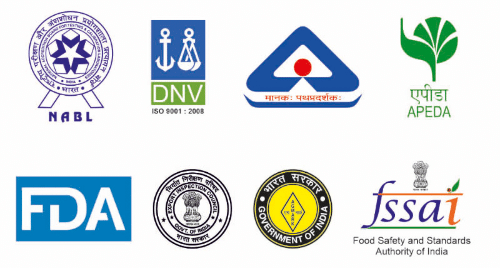



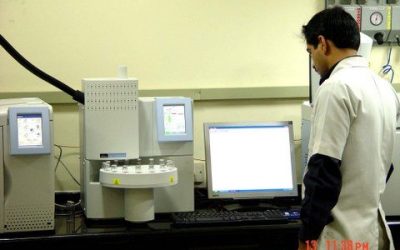

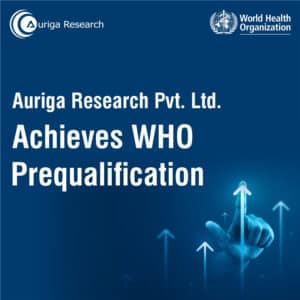
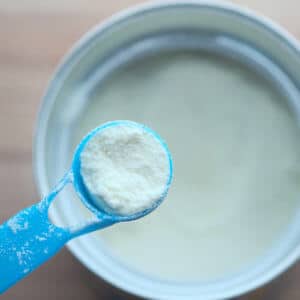

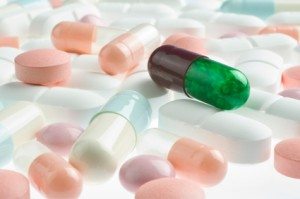
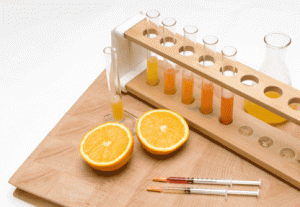
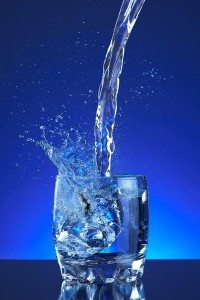


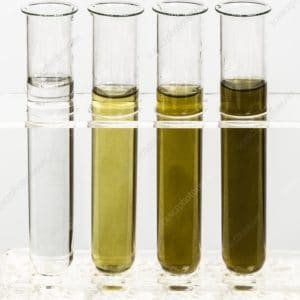
2 Responses
The hyperlink for USDA is incorrect. Please update.
Dear KGarvey,
Thank you for bringing it to our attention. The link to the USDA has been corrected.